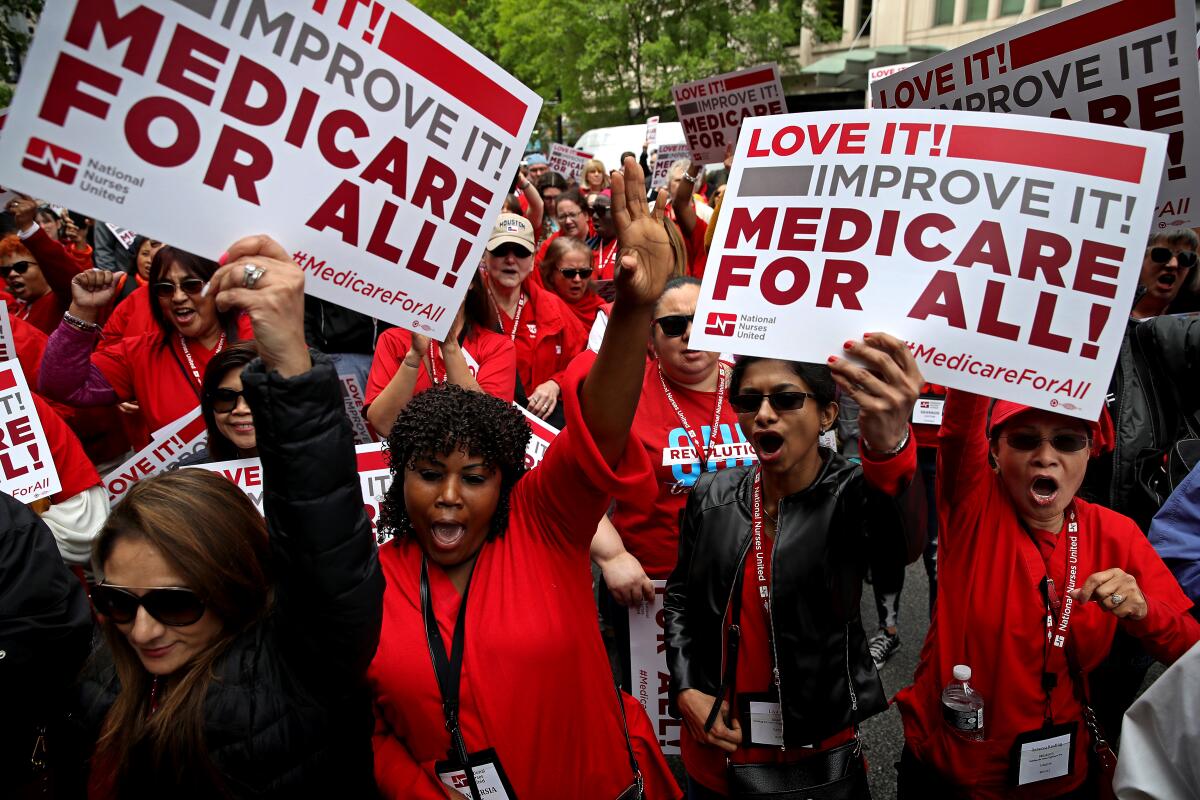Letters to the Editor: How to pay for ‘Medicare for all’ is only one of its many problems

- Share via
To the editor: It’s a good thing Stephen Marks is an economist, not an accountant. The $3 trillion a year figure he touts is the lowest estimate for the additional cost of “Medicare for all.” His assertion that the $1.5 trillion the government currently spends on healthcare would go away, thus offsetting half the new price tag, is bogus.
Even the $3-trillion estimate, correctly understood, is probably low. The Urban Institute, a center-left think tank, puts the number at $3.4 trillion. That modest difference equals more than half our national defense budget.
Medicare for all’s much-ballyhooed savings in administrative costs would evaporate once exposed to the real world. People will use more of anything once it’s “free.” Low reimbursement rates would threaten hundreds of hospitals and clinics, necessitating massive bailouts or higher rates.
Michael Smith, Georgetown, Ky.
..
To the editor: Thanks to Marks for unmasking the critics of Medicare for all. Even Democratic presidential candidate Sen. Amy Klobuchar played into the hands of Republicans by reciting their prejudicial words, “free stuff,” while trying to elevate her campaign against Sen. Elizabeth Warren.
The media also gratuitously repeat these words, aiding the Republicans in their campaign against a reasonable healthcare system that doesn’t cost double per person that of Canada.
Jim Hoover, Huntington Beach
..
To the editor: Marks provides some suggestions for Democratic Party candidates on how to pay for their Medicare for all proposals. However, the biggest question that never seems to rise above the rhetoric is how to implement Medicare for all itself.
By what process will the currently insured be weaned off the plans they prefer now? What happens to the up to 10 million people currently employed by health insurers, hospitals and other parts of the medical community?
Answers to these questions and more are just as important as how we might decide to pay for Medicare for all.
James Peterson, Beaumont
..
To the editor: Marks lays out compelling evidence that Medicare for all is economically feasible, but only up to a point. Despite this good news, universal healthcare in America will still be hampered by two looming issues.
First, we can legislate economies of scale, but this will not greatly curb our cultural bent for commodification of medicine, which is unique among the world’s nations.
Second, we face another even more daunting problem not mentioned in this article: This country will be kneecapped by spiraling medical costs, particularly for new medicines and genetic and surgical developments. Blatant rationing will be inevitable.
A balanced response to the latter issue will be much more difficult to achieve given the former.
William K. Solberg, Los Angeles
More to Read
A cure for the common opinion
Get thought-provoking perspectives with our weekly newsletter.
You may occasionally receive promotional content from the Los Angeles Times.









